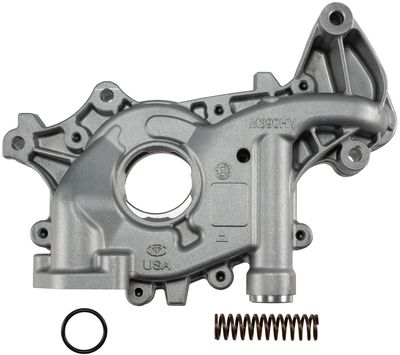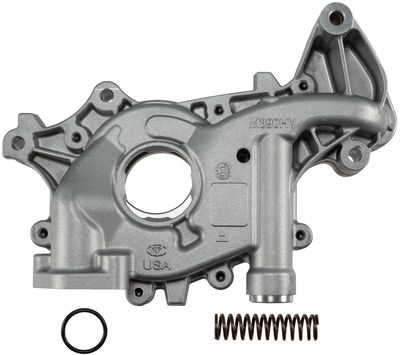Answer
Sep 03, 2024 - 08:15 AM
To determine if you need a Melling M390HV Engine Oil Pump, which is a high-volume oil pump designed to provide increased oil flow, consider the following factors related to your engine's condition, performance requirements, and operating conditions:
1. Current Oil Pressure Issues- Low Oil Pressure: If you are consistently experiencing low oil pressure, especially at idle or during normal driving conditions, a high-volume oil pump might help. Low oil pressure can be caused by several factors, including worn bearings, a failing oil pump, or a clogged oil filter, but if other components are in good condition, a high-volume pump can help maintain adequate oil pressure.
- Oil Pressure Warning Light or Gauge: If your oil pressure warning light is frequently on, or your gauge shows low readings, you should investigate further. After ruling out other causes (like oil leaks or a faulty oil pressure sensor), a high-volume pump could be the solution to help increase and stabilize oil pressure.
- High-Performance or Modified Engines: If you have a modified engine with performance enhancements such as a high-lift camshaft, turbocharger, supercharger, or larger bearing clearances, a high-volume oil pump can provide the extra oil flow needed to ensure proper lubrication of the modified components.
- Racing or High-Load Applications: Engines used in racing, towing heavy loads, or other high-stress applications often benefit from increased oil flow to maintain consistent lubrication and cooling under extreme conditions.
- Older or High-Mileage Engines: Engines with high mileage or significant wear may have looser bearing clearances and other internal wear that can cause lower oil pressure. A high-volume pump can help compensate for these increased clearances by providing additional oil flow, which can help maintain adequate pressure.
- Engine Rebuilds: During an engine rebuild, especially if increasing clearances or changing other engine internals, installing a high-volume oil pump like the M390HV could ensure the rebuilt engine has adequate oil flow for proper break-in and ongoing performance.
- Extreme Temperatures: If you operate your vehicle in very hot or cold climates, a high-volume oil pump can help maintain proper lubrication. Cold starts in winter can benefit from improved flow, while hot conditions may require better circulation to keep the engine cool.
- Heavy-Duty or Off-Road Use: Vehicles regularly used in heavy-duty conditions, such as towing, hauling, or off-road driving, put additional stress on the engine, making a high-volume pump advantageous for maintaining oil flow under those conditions.
- Check Vehicle Specifications: Ensure that your engine is compatible with a high-volume oil pump. Not all engines are designed to work with increased oil flow, so it is important to check your vehicle’s service manual or consult a professional mechanic.
- OEM vs. Aftermarket Requirements: If your engine has specific oil flow requirements or restrictions, you might need to stick with the OEM specifications. However, for most high-performance or modified engines, the M390HV offers enhanced benefits.
- Consult a Mechanic: If you are unsure whether your engine would benefit from a high-volume oil pump, a professional mechanic can help diagnose any oiling issues and recommend whether upgrading to a Melling M390HV is appropriate.
- Oil Analysis: Performing an oil analysis can help identify any signs of abnormal wear or oil degradation, which might suggest insufficient lubrication that a high-volume pump could help alleviate.
You might need a Melling M390HV Engine Oil Pump if you experience low oil pressure, have a high-performance or modified engine, operate under extreme conditions, or have an older or high-mileage engine that would benefit from increased oil flow. Ensure compatibility with your engine and consult a professional if needed to make the best decision for your specific vehicle needs.





Add New Comment